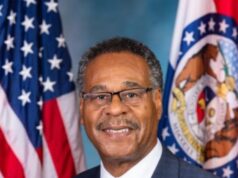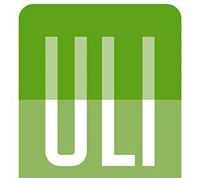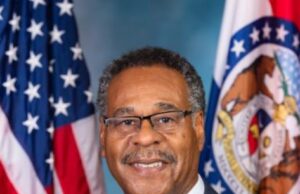NFIB and PLF sue OSHA for foisting union activists on businesses
WASHINGTON, D.C.; September 13, 2016 – (RealEstateRama) — The Occupational Safety and Health Administration (OSHA) is illegally foisting union activists onto non-unionized businesses, through an unlawful rule allowing agents from organized labor to participate, as of right, in OSHA health and safety inspections.

Illegal “walk around” rule empowers unions at the expense of businesses’ rightsSo argues a lawsuit filed today by attorneys with Pacific Legal Foundation (PLF), representing the National Federation of Independent Business (NFIB). Donor-supported PLF is the leading legal watchdog that litigates nationwide for limited government, property rights, individual rights, and free enterprise. NFIB is the nation’s leading small business advocacy organization, with a mission to promote and protect the right of entrepreneurs to own, operate, and grow their businesses.
Filed in U.S. District Court for the Northern District of Texas, the suit targets OSHA’s 2013 “walk around” rule, which allows union activists to serve as third-party participants on OSHA inspection teams — even for businesses that are not unionized.
The “walk around” rule was imposed illegally, without notice and comment, and in conflict with OSHA’s authorizing statute and agency regulations. The Williams-Steiger Occupational Safety and Health Act of 1970 allows inspections of workplaces, and provides that a representative of the employer and a representative of employees may accompany the investigator. In turn, an OSHA regulation says that the representative of the company’s employees should “be an employee of the employer” — unless a non-employee “is reasonably necessary to the conduct of an effective and thorough physical inspection of the workplace.” The regulation cites safety engineers and industrial hygienists as examples of such “reasonably necessary” third parties.
The “walk around” rule violates the statute and OSHA’s existing regulations. The rule holds that a union representative automatically qualifies as a “reasonably necessary” participant in an OSHA workplace inspection — even if the business is not unionized and regardless of any technical or other relevant expertise the representative may (or may not) have.
Politicizing the OSHA inspection process
“This ‘walk around’ rule essentially provides cover for what amounts to trespassing by union officials,” said PLF Principal Attorney Joshua P. Thompson. “It gives union representatives the power to intrude on private workplaces and button-hole non-union employees, by deputizing these officials as government inspectors.”
“The illegal rule politicizes and subverts OSHA’s core health and safety oversight responsibilities,” added PLF Principal Attorney Damien M. Schiff. “It twists the process to serve organized labor’s agenda of unionizing more workplaces and expand its rolls of dues-paying members. The rule is plainly at odds with OSHA’s regulatory mandate that a non-employee representative must have some specialized skill relevant to the substance of the inspection.
“Moreover, it was promulgated by bureaucratic fiat, instead of through the open and deliberative processes required by administrative law,” Schiff added.
NFIB: challenging OSHA-sponsored harassment of small businesses
NFIB is the nation’s leading small business advocacy organization. Founded in 1943 as a non-profit, non-partisan organization, NFIB’s mission is to promote and protect the right of its members to own, operate, and grow their businesses. It represents approximately 325,000 independent business owners throughout the United States and in a wide variety of industries. The typical NFIB member employs 10 people and reports gross sales of about $500,000 a year.
NFIB has members who have been affected by the “walk around” rule and its illegal imposition of labor activists on non-unionized workplaces. For instance, one small non-unionized business in Texas, an NFIB member, had labor representatives show up four times as part of OSHA inspections. The intrusions by union activists ended only after the business owner went on national television to bring light to the harassment.
In the fall of 2015, the NFIB Legal Center released a comprehensive report detailing examples of “underground regulations,” wherein federal agencies had imposed new substantive rules on businesses without allowing the regulated community the chance to voice concerns or point out problems.
“The walk around rule has nothing to do with worker safety and everything to do with intimidating independent business owners,” said Karen Harned, Executive Director of the NFIB Small Business Legal Center. “This is purely and simply a bully tactic on the part of the government for the benefit of unions.
“I can’t think of a more intimidating circumstance for a small business owner than to have a federal inspector show up with an outside union agent whose goal is to solicit complaints and organize the workers.”
The case is NFIB v. OSHA. More information, including the opening legal filing and an explanatory blog post, is available at: www.pacificlegal.org. Read NFIB’s Underground Regulation report.
About Pacific Legal Foundation
Donor-supported PLF is the leading watchdog organization that litigates for limited government, property rights, individual rights, and free enterprise. PLF represents all clients free of charge.
Contact:
Damien M. Schiff
Principal Attorney
Pacific Legal Foundation
(916) 419-7111
www.pacificlegal.org
Joshua P. Thompson
Principal Attorney
Pacific Legal Foundation
(916) 419-7111
www.pacificlegal.org
Karen Harned
Executive Director
National Federation of
Independent Business
Small Business Legal Center
(202) 314-2061
www.nfib.com
















